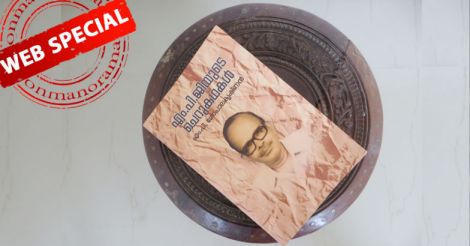The angry young men of the 1970s, age-old tharavadus and the rustic villages of Kerala are set before us through the 'MPGude cherukathakal' (The Short Stories of MPG).
The book with 21 short stories by MP Gopalakrishnan (MPG) was published posthumously by his children recently. Born and brought up in Palakkad, the young MPG reached Madras where he worked with the Tamil Nadu Electricity Board.
It is safe to assume that the writer drew immense inspirations from his life and the world around, for most of his stories narrate the tales of Malayali men who ditched their caste-prescribed tasks and went in search of 'real jobs' in the flourishing cities of Madras and Bombay armed only with their meager educational certificates.
The emotions of loss, despair and a sense of wanting add a somber shade to most of the stories. It's a case of lost love as men are seen picking the pieces of failed romantic trysts like our hero in the short story Madakayathra (the return journey). The stories titled Karinja Pushapangal (burned flowers), Urukitheerna Mezhukutirikal (candles) and Marichavante Sabdam (the dead man's voice) ooze the inherent melancholy prevailing in the people's lives.
However, the author did infuse humor and sarcasm through Oru Thakeethinte Kadha and Oru Cropinte Kadha. My personal favorite is Oru Cropinte Kadha, where a modern youth fears about the fate of his hairstyle at the hands of a family barber. A fun read, the story showcased the lighter side of generation wars.
The book could have been more appealing, if the author had looked at life through other frames of laughter, sarcasm or even revenge. These are strangely missing or not adequately pursued.
The women make an appearance in the stories too, but are mostly reduced to caricature images. But Ulladakam talks about a housewife and mother who refuses to forgive her estranged husband.
Even the language and syntax used by the writer stand loyal to the old times. The characters speak in their native dialects and its a feast for the language lovers. You will have the pleasure of revisiting some of the gems from the bygone era – lakot (envelope) and aspathri (hospital) among others.
If the sepia-colored frames of our state's past interest you, come plunge into this nostalgic cauldron.
























